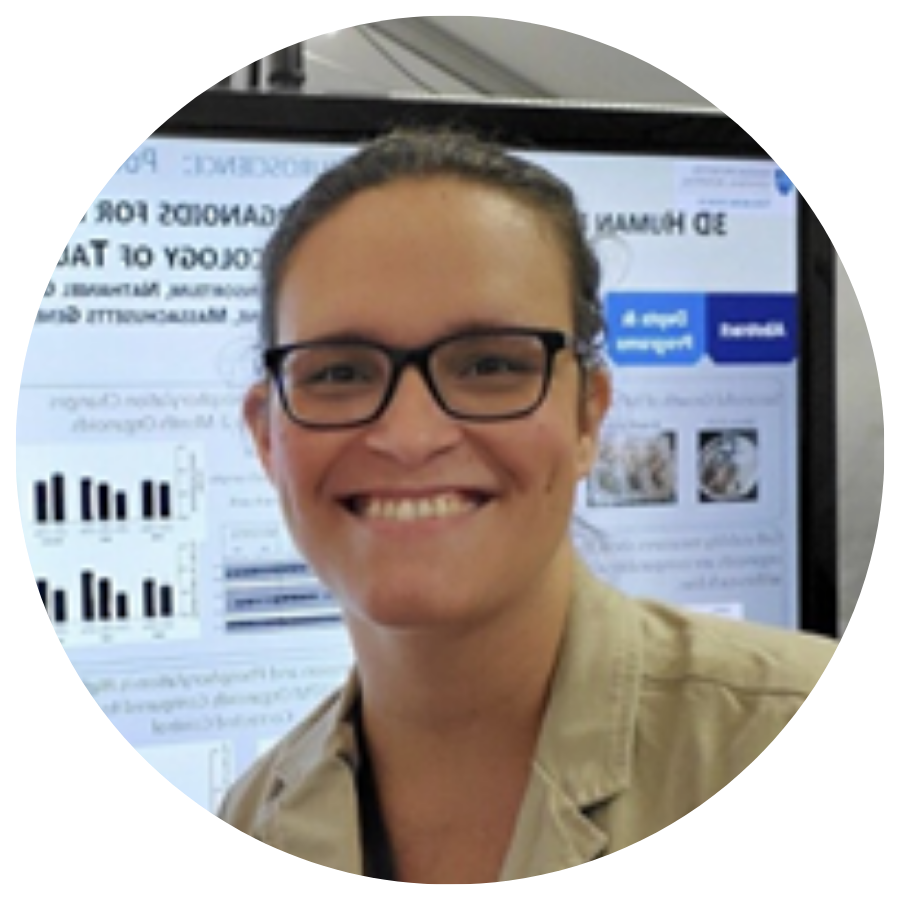Investigation of ULK1-Based Autophagy Activators as Therapeutics for Tauopathies
 Principal Investigator: Dr. Maria Catarina Lima da Silva
Principal Investigator: Dr. Maria Catarina Lima da Silva
Department of Neurology, Massachusetts General Hospital, Harvard Medical School, Boston, MA
Diseases like progressive supranuclear palsy (PSP) and frontotemporal dementia (FTD) that are caused by the accumulation of aberrant tau aggregates in the brain are globally termed tauopathies. Despite an urgent unmet need for tau-targeted therapeutics, none has yet shown efficacy in clinical trials. Another characteristic of these diseases is impairment of the cellular machinery responsible for removal of protein aggregates, the autophagy pathway; and studies show that pharmacological enhancement of autophagy can reduce tau accumulation and toxicity. So far, the principal method to enhance autophagy relies on inhibition of mTOR but, because this complex is also involved in regulation of cell growth and lifespan, it cannot be continuously inhibited without causing secondary toxic effects. From a drug screen focused on autophagy enhancement and tau clearance in PSP patient-derived neurons, we identified an alternative regulator of autophagy, the serine/threonine-kinase ULK1. Two small-molecule activators of ULK1 were found to promote autophagy in human neurons, alleviating tau burden and toxicity. The proposed studies now will focus on two main goals. Aim 1 will build on characterization of the mechanism-of-action of ULK1 activators that lead to tau clearance in disease neuronal models, and determination of the level of mTOR involvement. Aim 2 will focus on the synthesis and testing of novel drug-like molecules, derived from the initial leads, with improved properties for neurological diseases therapeutics. This will allow the identification of optimized molecules active in different patient-derived neuronal models for follow-up trials in animal models. The innovation component of this project entails identification of activators of autophagy through mechanisms-of-action other than mTOR inhibition, in a human neuronal disease context. The strength of our approach relies on pharmacological strategies for drug discovery utilizing patient-specific neurons cultured in a dish, to identify potential drugs with relevance across different forms of tauopathy.